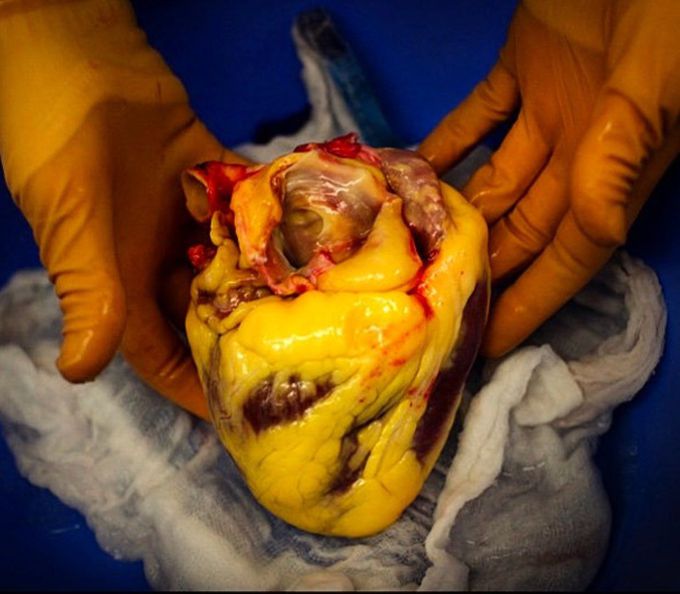

Medicaltalks over 8 years ago

#NSFWSensitive content 18+
This material contains content which some users might find distrubingThis is a heart from an obese patient, shown covered in its thin layer of epicardial fatty deposits
This was taken prior to a transplant surgery. Epicardial fat covers 80% of the heart's surface and constitutes 20% of total heart weight and is present along the distribution of the coronary arteries. While this particular heart isn't pathological, having a big amount of epicardial fat plays a crucial role in the pathogenesis of coronary artery disease. When fatty deposits occur, the coronary arteries become clogged and the myocardium won't be able to get enough blood and oxygen. This will cause a sharp pain, known an angina, in the heart and is the first stage of atherosclerosis, which may eventually lead to myocardial infarction.
Other commentsSign in to post comments. You don't have an account? Sign up now!

